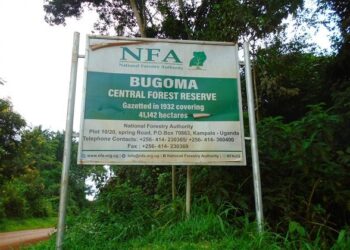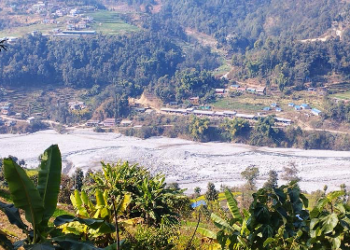LETTERS TO EDITOR
EDITOR, today May 22, Uganda is joining the rest of the countries to celebrate the International Day for Biological Diversity, to raise awareness of the vital importance of preserving biodiversity. Biodiversity is the foundation of healthy ecosystems which in turn support human well-being, food security, clean water and climate regulation. This day is a reminder to the world that we cannot survive without biodiversity and it aims at raising awareness and understanding of biodiversity issues, emphasizing the importance of protecting and preserving the world’s diverse ecosystems and species.
 Each year, this day is commemorated with a unique theme. For 2025, the theme is “Harmony with nature and sustainable development” which reflects the urgent need to realign our development pathways with the natural systems that sustain life. The day serves as an annual reminder of how essential biodiversity is to life on earth and also how rapidly it continues to be eroded through burning of fossil fuels, deforestation, charcoal burning, timber logging among other human activities. The day therefore encourages individuals, organizations and governments to take action to reverse this trend.
Each year, this day is commemorated with a unique theme. For 2025, the theme is “Harmony with nature and sustainable development” which reflects the urgent need to realign our development pathways with the natural systems that sustain life. The day serves as an annual reminder of how essential biodiversity is to life on earth and also how rapidly it continues to be eroded through burning of fossil fuels, deforestation, charcoal burning, timber logging among other human activities. The day therefore encourages individuals, organizations and governments to take action to reverse this trend.
However, despite decades of international agreements and conservation efforts, Uganda continues to face significant biodiversity loss at an alarming rate due to different human activities such as industrial expansion, deforestation, oil exploitation, pollution and climate change which pose a grave threat, displacing these animals and hindering the natural growth and expansion of their habitats. This degradation of ecosystems threatens the very foundation of sustainable development and when nature is destroyed or exploited without regard for its limits, communities face increased vulnerability to disasters, food and water insecurity, and loss of livelihoods.
Global Forest Watch reports a total of 46,689 deforestation alerts between April 26 and May 3, 2025, covering 575 ha. The negative trends of biodiversity loss, including species extirpation, are ongoing and according to the Ministry of Water and Environment, Uganda is losing 122,000 hectares of forest cover annually.
 Statistics obtained from the ministry indicate that in 1990, Uganda had 24 percent of forest cover, but due to the escalating illegal activities including deforestation and population growth that has forced people to encroach on the various forest reserve land to carry out cultivation, this has drastically reduced the forest cover to 12.7 percent currently. It is noted that these illegal activities in the forest reserves are adversely impacting the forest cover in the country and they need to be addressed.
Statistics obtained from the ministry indicate that in 1990, Uganda had 24 percent of forest cover, but due to the escalating illegal activities including deforestation and population growth that has forced people to encroach on the various forest reserve land to carry out cultivation, this has drastically reduced the forest cover to 12.7 percent currently. It is noted that these illegal activities in the forest reserves are adversely impacting the forest cover in the country and they need to be addressed.
Therefore, as we celebrate this day, the government needs to empower people on how to make better use of our natural resources and improve management of waste and chemicals products for economic and social growth as we must also set up effective laws, policies and institution to govern actions that affects our biodiversity. Government should also empower people to plant, protect, monitor reforestation on large and support community agroforestry to reduce pressure on existing forests.
By Olive Atuhaire,
The writer is a Research Associate at AFIEGO
E-mail: atuhaireolivia72.ao@gmail.com








































